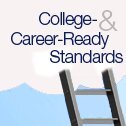As high school graduates of 2014 head to college this fall, the recent ACT report shows most are not prepared for the rigor of the coursework they will encounter. However, those who took challenging courses in high school face better odds of success.
The Iowa City, Iowa-based testing organization found that when students took the ACT-recommended core college preparatory curriculum (four years of English and three years each of math, science, and social studies), they were far more likely than those who took less than the core to meet ACT’s college-readiness benchmarks in each of the four subject areas.
This year’s report shows 73 percent of 2014 graduates reported taking the core curriculum, 22 percent took less than the core, and 5 percent did not respond. Among 2013 graduates, 74 percent took the recommended core courseload in high school.

Of those students who went into the ACT having taken the core curriculum this year, 67 percent met the benchmark in English (compared to 36 percent among those with less than the core); 47 percent met reading benchmarks (32 percent for others); 46 percent achieved the math standard (8 percent for others); and 41 percent met the standard in science (17 percent for others). This was virtually the same breakdown as last year.
The ACT report underscores the importance of early preparation—even before high school. Research from 2008 found that the level of academic achievement that students attain by 8th grade has a larger impact on college and career readiness by the time they graduate from high school than anything that academically happens in high school.
ACT officials note that schools need to ensure that students not only enroll in core course, but that the curriculum covers essential skills needed for college success. An ACT report earlier this month showed that requiring students to take three years of math and two years of science in high school in Illinois did not have a major impact on student achievement and college readiness. Researchers recommended that efforts should be focused on early preparation to ensure that students have better skills by the time they reach high school.
Getting more students to take a core curriculum, teaching to a higher set of standards, early intervention for students who fall behind and career planning are all ways the ACT report recommends that schools help students improve college readiness in the future.